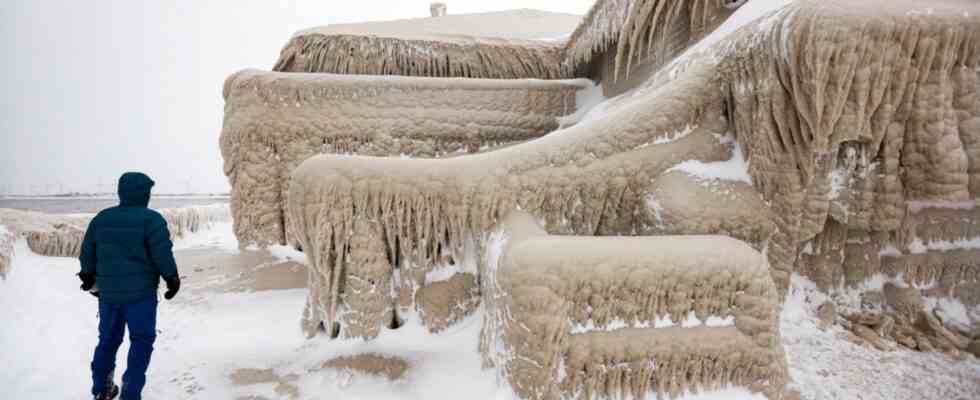Because extreme heat and cold are more common, people need more electricity to cool or heat.
The International Energy Agency (IEA) estimates that power supply and demand for electricity will increasingly depend on the weather in the future. Drought and heatwaves in Europe, India and China meant more people used air conditioning last summer. In the USA, on the other hand, the onset of winter resulted in significant power outages, according to the IEA’s new electricity market report, which it presented in Paris on Wednesday.
These examples underscored the need to accelerate the move away from fossil fuels and accelerate the use of clean energy technologies. The effects of weather events therefore increased the demand for electricity because more and more people heat electrically. At the same time, the share of weather-dependent renewable energies in the electricity generation mix will continue to increase.
It is therefore important to increase the flexibility of the electricity systems while at the same time guaranteeing the security of supply and the resilience of the grids. The IEA estimates that renewable energies will be expanded significantly and that their share in the global electricity generation mix will therefore increase from 29 percent in 2022 to 35 percent in 2025. The share of coal and gas-fired power generation, on the other hand, will decrease. The International Energy Agency predicts that the CO2 emissions from global power generation will continue to decrease in the coming years.
In the short term, more emissions because of coal
However, Europe has decoupled from this global trend in the past year. The CO2 emissions of European electricity generation increased, which can be attributed to a higher use of coal and gas. Germany, for example, lets coal-fired power plants in North Rhine-Westphalia run longer that should actually be shut down. Due to the Ukraine war and energy imports from Russia, Germany and Europe wanted to save gas that is burned to generate electricity, fossil fuels such as coal were in greater demand again.
At the same time, there was less hydroelectric power due to periods of drought in the summer. The nuclear power plants in Europe also produced less electricity overall due to maintenance work, water shortages and shutdowns.
This setback is only temporary, however, as emissions from European electricity generation are expected to fall by an average of 10 percent per year by 2025, says the IEA.

